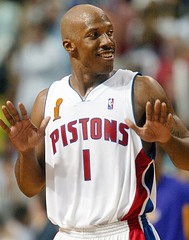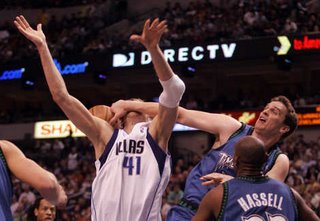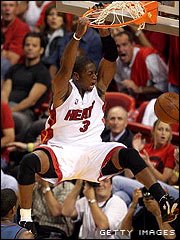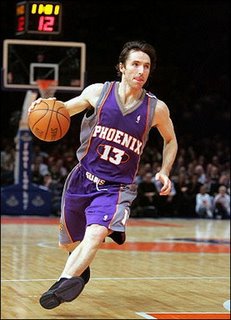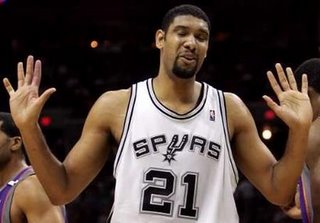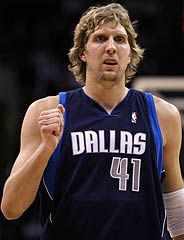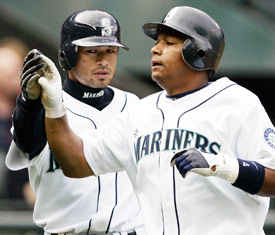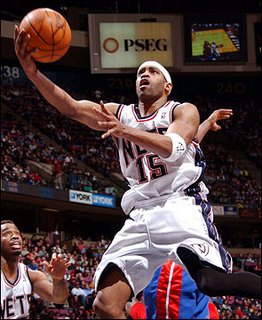The Downfall of the Pistons: Much Ado About Nothing
Tonight the Miami Heat travel to Detroit, looking to close out the Pistons in the Eastern Conference Finals. To hear the media tell it, this is an upset of epic proportions. A shocking turn of events. A monumental story. To the average pundit, expert, and fan, we are on the verge of seeing the “mighty” Pistons eliminated from the playoffs. Fire up the word processor!
Stories are flying left and right as people scramble for an explanation. Detroit is too reliant on its offense this year. The players are giving up on the coach. Flip Saunders can’t coach in the playoffs. They got too cocky. They are worn out from three years of extended seasons. On and on it goes.
How about this for an explanation: the Detroit Pistons were never as good as you thought they were.
If you take a snapshot of the last three years, “Deeeeeee-troit Bas-ket-ball!” looks pretty good. A title, followed by an NBA Finals appearance, topped off with a franchise record 64 wins in the 2005-2006 regular season and a trip to the Eastern Conference Finals. It’s not a dynasty or anything, but it is a nice run all the same. It is the type of run that says, “this is a very good, maybe great, team.” Again, that is the snapshot.
A closer look reveals something else entirely. Rather than give you the punch line, let me walk you through all of Detroit’s success from the past three seasons.
2004 – This was the title run. The year of “play the right way” and the midseason acquisition of Rasheed Wallace that somehow gave Joe Dumars a lifetime free pass for taking Darko ahead of Dwyane Wade, Carmelo Anthony, and Chris Bosh. The snapshot reveals a mighty Detroit team that vanquished the Lakers in five games in the NBA Finals. Not so fast. For starters, Detroit reached the Finals by coming out of an Eastern Conference that still had an “L” in its name, for “Leastern.” And winning an inferior conference wasn’t exactly a walk in the park. It took a miraculous block by Tayshaun Prince to beat an arguably superior Indiana team in the semis, and Detroit needed a Jason Kidd knee injury to get past New Jersey in the conference finals. Nobody remembers this now, but New Jersey was up 3-2 in that series and had a close-out game at home, when all of a sudden, Kidd could hardly walk. Detroit moves on. And who do they face? None other than the Kings of Dysfunction, the Los Angeles Lakers. It was a miracle that L.A. even made it to the Finals that year, since both the Spurs and the Wolves were better teams. However, Derek Fisher hit that miraculous bank shot against San Antonio (which led to a complete meltdown by Tim Duncan – a collapse that for some reason is never discussed when people talk about his career) and Sam Cassell got hurt in the Western Conference Finals, so the Lakers prevailed. However, along the way, L.A. lost the heart and soul of that team, Karl Malone. And with him they lost all hope of beating any competent team in the Finals. So Detroit won a championship. Give them credit, because they looked really good doing it, but just know that they had Lady Luck on their side throughout those playoffs.
2005 – Detroit makes it back the Finals, where they lose to the Spurs because of a mental mistake by Rasheed Wallace. This one shouldn’t take as long. Basically, they won the East (and almost a second consecutive title) because Dwayne Wade – who was treating the Pistons like a high school team – suffered a mysterious rib injury. It is as simple as that.
2006 – The Pistons bring in an offensive-minded coach to replace Larry Brown and they rattle off 64 wins. I think this is where things started getting blown out of proportion. The tremendous regular season success, coupled with the postseason success of the past two years, led people to believe that this was some sort of unstoppable force. In reality, it was a collection of hard working players that fit well together and played their best when the chips were down. If anything, the Pistons had overachieved enormously over the past three seasons. If the East was as good as advertised this season, Detroit probably wins 58 games and nobody thinks of them as a “great” team. If even one Piston starter suffers even one minor injury, they probably win 58 games. And we already know how easily things could have turned out differently in the 2004 and 2005 Playoffs.
What I’m saying is that with a few bad bounces (or even just the absence of a few good bounces) here or there, this could be a team that never made it further than the Eastern Conference Finals. And instead of wringing our hands at the downfall of a mini-dynasty, we would just be shrugging our shoulders and saying, “This makes sense, with Wade and Shaq healthy and playing well, Miami is a much better team.”
I’m not here to write the Pistons off as nothing but a lucky team, nor am I trying to downplay the egregious way that many Detroit players are handling themselves right now (these guys are acting like participants on “The Apprentice” – busy pointing crooked fingers and laying blame in the event of a loss, rather than putting all their effort into winning). What I am saying is that we might have a “much ado about nothing” situation on our hands. Because when you look at the big picture, here is what you get:
An overachieving team that usually plays well in big moments isn’t playing very well this time around, and for the first time in the last three years, they are playing a healthy team in the Eastern Conference Finals. It isn’t going well.
This is a huge story? If you say so.
